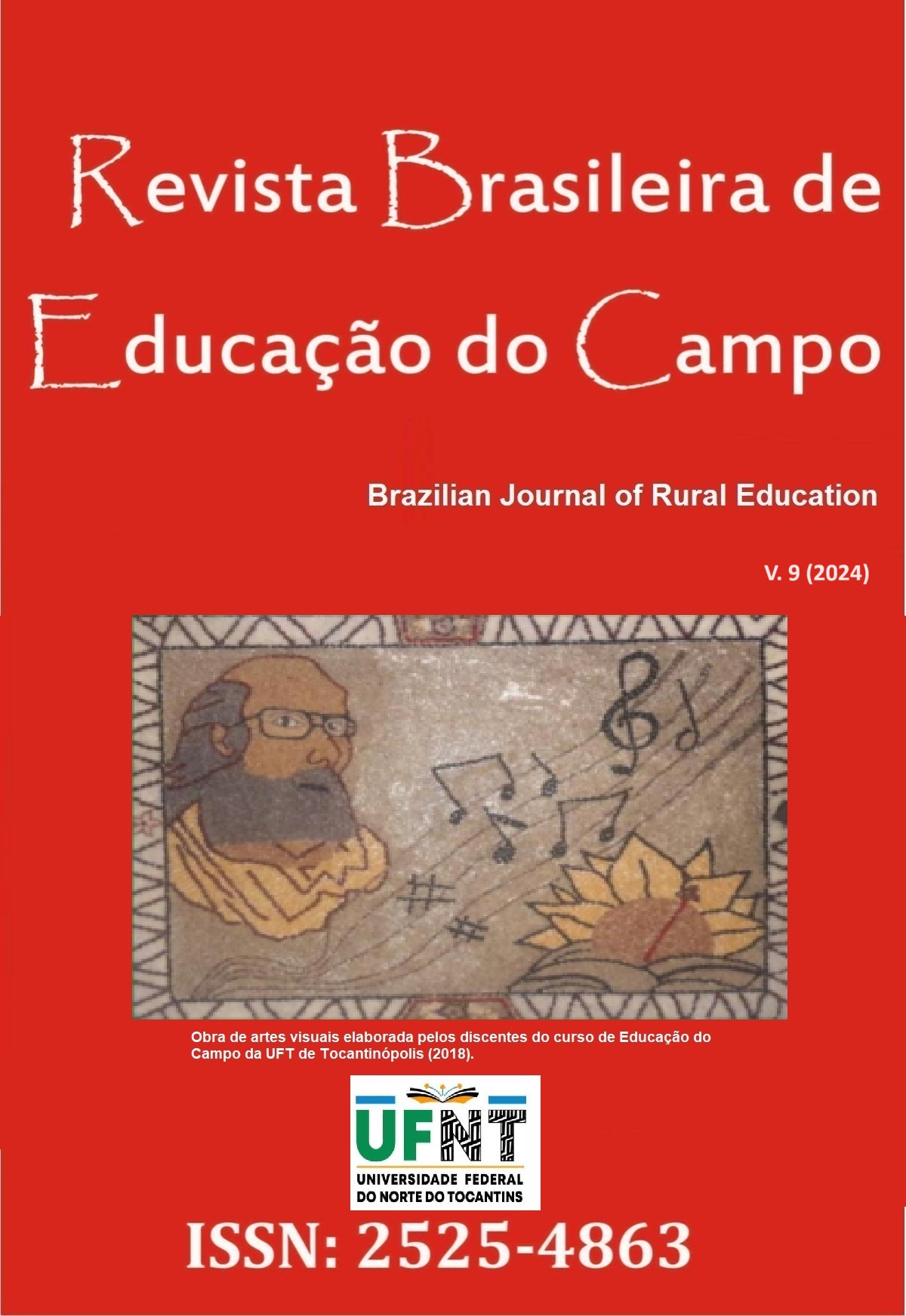Study of thermal physics from the construction of an electric brooder: Project Based Learning
DOI:
https://doi.org/10.70860/ufnt.rbec.e16745Abstract
ABSTRACT. The teaching of Physics aims to contribute to the formative process of students, enabling the resolution of problems and challenges in daily life. In the context of country school, the approach of concrete and contextualized situations assists in the student's scientific learning process. This paper presents an experience report that seeks to discuss the potential of problem-solving and inquiry in Physics Education, using the methodology of Project Based Learning. The experience was developed with a 2nd grade class of High School in a country school. The data were analyzed qualitatively, comparing the progress achieved by students in pre and post-tests applied to the class. The results obtained showed that the approach of active methodology combined with the students' context favors the appropriation of content, enhances the meaningful learning of physical phenomena and makes the classes more dynamic.
Downloads
Literaturhinweise
Ausubel, D. P., Novak, J. D., & Hanesian, H. (1980) Psicologia educacional. Tradução Eva Nick. Rio de Janeiro: Interamericana.
Ausubel, D. P. (1982). A aprendizagem significativa: a teoria de David Ausubel. São Paulo: Moraes.
Bender, W. N. (2014). Aprendizagem baseada em projetos: educação diferenciada para o século XXI. Porto Alegre: Penso.
Bonadiman, H. (1997). A simplicidade no laboratório de Física. Espaços da Escola, 24, 19-24.
Blog. Lyceum, Redação. (2019). Aprendizagem Baseada em Projetos: tudo o que você precisa saber. Blog Lyceum, 06 de agosto de 2018, atualizado em 13 de setembro de 2018. Recuperado de: https://blog.lyceum.com.br/aprendizagem-baseada-em-projetos. Acesso em 01/12/2019.
Brasil. (2017). Ministério da Educação. Secretaria da Educação Básica. Base Nacional Comum Curricular – Ensino Médio. Brasília.
Galante, C. E. S. (2013). O uso de mapas conceituais e de mapas mentais como ferramentas pedagógicas no contexto educacional do ensino superior. Revista Processus de Estudos de Gestão, Jurídicos e Financeiros, s./p.
Kato, D. S., & Kawasaki, C. S. (2011). As concepções de contextualização do ensino em documentos curriculares oficiais e de professores de Ciências. Ciência & Educação, 17(1), 35-50. DOI: https://doi.org/10.1590/S1516-73132011000100003
Lange, G., Puls, I., & Wafadar, F.(2011). Melhoria da incubação de ovos e criação de pintos. Wageningen: ISBN Agromisa ISBN CTA.
Mora, L. A. (2008). Processos de Incubação Artificial de ovos: Desenvolvimento de sistemas de medição de temperatura e massa. Dissertação Faculdade de Engenharia Agrícola - UEC, Campinas/SP.
Moran, J. M. (1999). Metodologias ativas e modelos híbridos na educação. Curitiba: CRV: Moreira, M. A. Teorias de aprendizagem. São Paulo: EPU.
Moran, J. (2017). Mudanças necessárias na educação, hoje. In Moran, J. (Org;). Novas Tecnologias e Mediação Pedagógica (s./p.). Campinas: Papirus.
Moreira, M. A. (1982). Aprendizagem Significativa – a teoria de David Ausubel. São Paulo: Editora Moraes.
Moreira, M. A. (2017). Aprendizagem significativa. Brasília: Ed. da UnB. In Sá, C. O. [et al]. Manejo de ovos férteis de galinha caipira para a incubação artificial no estado de Sergipe (s./p.). Embrapa. Aracajú: ISSN.
Vivan, P. M. (2019). Fatores Físicos que influenciam no desenvolvimento embrionário durante o processo de incubação (Trabalho de Conclusão de Curso). Universidade Federal do Rio Grande do Sul. Porto Alegre.
Downloads
Veröffentlicht
Zitationsvorschlag
Ausgabe
Rubrik
Lizenz
Copyright (c) 2024 Adenauro Martini, Elizandra Sehn

Dieses Werk steht unter der Lizenz Creative Commons Namensnennung 4.0 International.
Creative Commons Attribution License
Creative Commons Attribution License
Proposal for Copyright Notice Creative Commons
1. Policy Proposal to Open Access Journals
Authors who publish with this journal agree to the following terms:
A. Authors retain copyright and grant the journal right of first publication with the work simultaneously licensed under the Creative Commons Attribution License that allows sharing the work with recognition of its initial publication in this journal.
B. Authors are able to take on additional contracts separately, non-exclusive distribution of the version of the paper published in this journal (ex .: publish in institutional repository or as a book), with an acknowledgment of its initial publication in this journal.
C. Authors are permitted and encouraged to post their work online (eg .: in institutional repositories or on their website) at any point before or during the editorial process, as it can lead to productive exchanges, as well as increase the impact and the citation of published work (See the Effect of Open Access).














